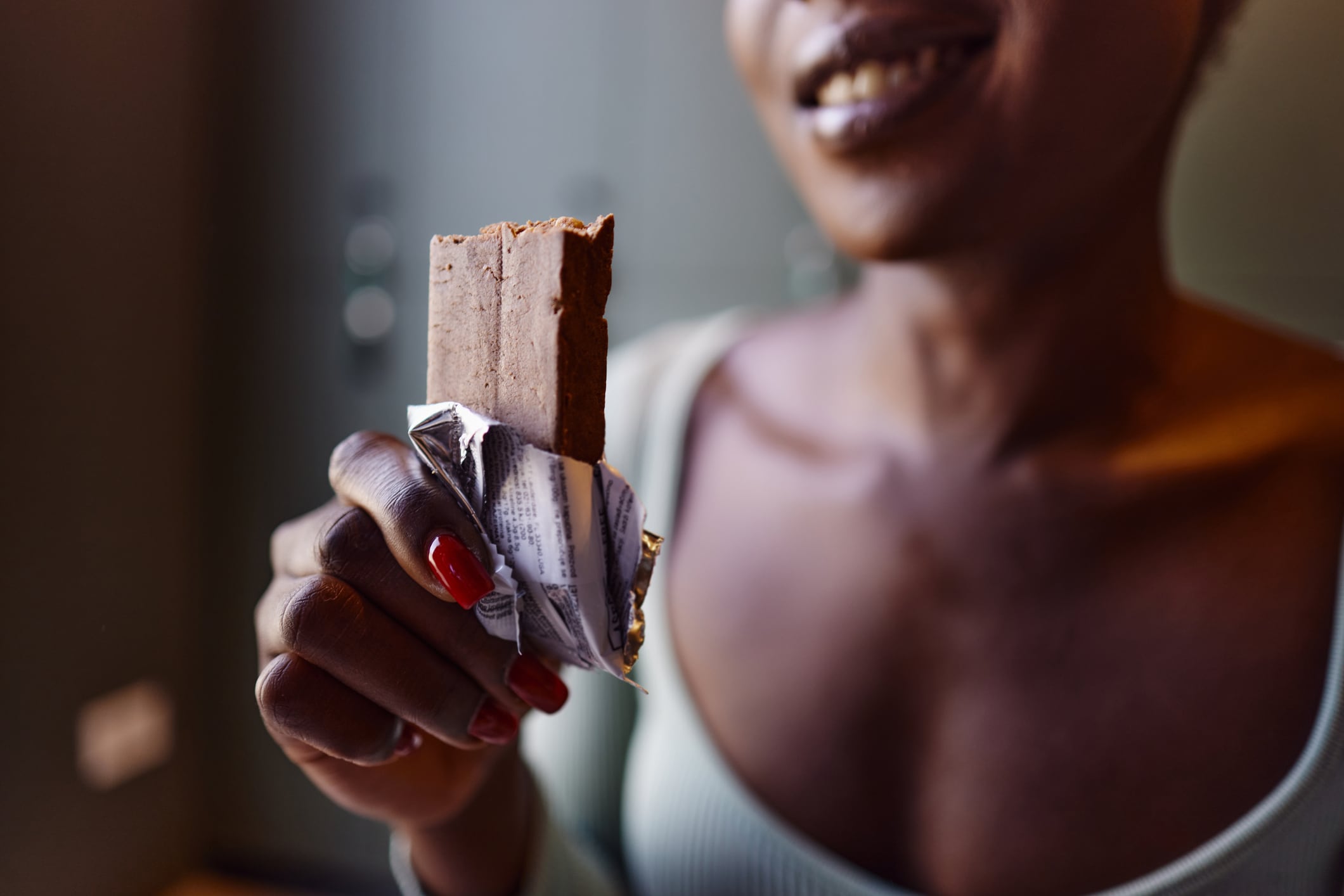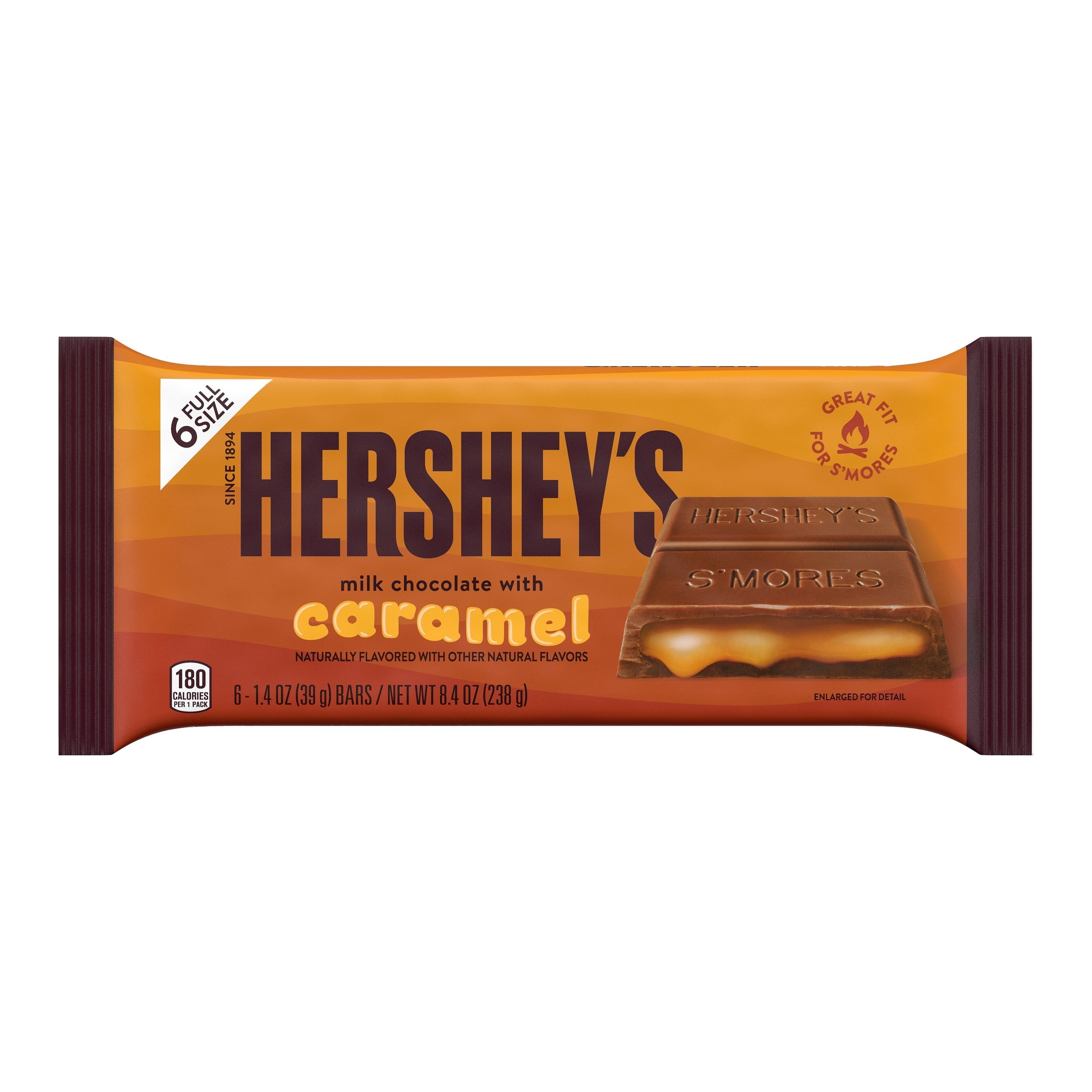Mondelēz International’s 2024 State of Snacking report identified mindful consumption as a core trend, with 96% of global consumers confirming they engage in mindful snacking behaviours. Of those asked, 79% agreed: “I appreciate my snacks more when consumed mindfully.”
“Mindful indulgence has shifted from restriction to moderation,” says Desiree Battaglia, global media relations manager at Mondelēz International. The confectioner’s State of Snacking report also found 94% of global consumers are likely to have a snack as a reward or treat. Consumers continue to prioritise indulgence as a way of treating themselves, and they take the time to truly enjoy whatever it is they’re indulging in.
Acknowledging the entire sensory experience of eating sweet treats is a key part of mindfulness, with 81% of consumers saying they pay attention to their snacks’ sensory experience.
At-home eating occasions are edging closer towards premiumisation and the treat-based landscape, leaning into the mindful indulgence trend. According to research from British chocolate manufacturer Hames Chocolate, 40% of consumers plan to go out less often but still want affordable indulgence when treating themselves or entertaining at home.
How does mindful indulgence stand out?
‘Better-for-you’, ‘functional’ and ‘healthier alternatives’ are some of the common terminologies used in the confectionery space to describe formulations that seek to add nutritional value to indulgent products. Is mindful indulgence simply another iteration of these existing evolutions, or is it a standalone trend of its own?
“Mindful indulgence does differ from these trends a little bit,” Battaglia confirms. While better-for-you or functional confectionery focuses on ingredients and perceived health benefits, mindful indulgence appreciates a treat for what it is in an appropriate portion. “It’s about eating with intention and attention and being conscious of what you want to eat and how it makes you feel,” Battaglia adds.
“Chocolate should always feel special, but in 2025, the meaning of ‘special’ is being rewritten by a new type of consumer,” adds Carol Oldbury, managing director at Hames Chocolates. “One who wants pleasure without excess, transparency and experiences that can be savoured, rather than devoured.”
New, novel and nostalgic product varieties are in demand from shoppers, especially younger generations. The Gen Z and millennial demographics are more likely to snack to boost their mood, find comfort and manage stress. Mondelēz’s survey found that 81% of consumers snack to find quiet moments to themselves, up 9% from its 2023 report.
Chocolate should always feel special, but in 2025, the meaning of ‘special’ is being rewritten by a new type of consumer
Carol Oldbury, managing dDirector at Hames Chocolates
Retail and food service buyers are already feeling that shift due to category reviews and shopper insight decks. Referring to this movement as ‘mindful indulgence’, Hames Chocolates says it’s seeing first-hand how it’s changing the way it works with customers of all sizes and sectors, from large organisations to high street coffee shops and corporate gifting for businesses.
Global and national brands alike, including Mondelēz and Hames Chocolates, are innovating their product selections by offering new brand flavours and collaborations. The global chocolate and snacking giant has recently launched limited-edition flavours and collaborations, such as the Cadbury Biscoff bar, while the British chocolate manufacturer has released its new Munch Pouches.
Balancing nutrition with indulgence
“Snacking remains a cost-effective way for consumers to treat themselves,” says Battaglia. Budget-friendly snacks, combined with a focus on quality over quantity, mean shoppers are not avoiding sweet treats but are conscious of their consumption habits. Mondelēz found that almost three-quarters (73%) of global consumers would rather have a smaller portion of an indulgent snack than a bigger portion of a low-fat or low-sugar option.

“We focus on new chocolate offerings that consumers may choose to indulge in and truly enjoy in a mindful way,” Battaglia adds. Mondelēz believes chocolate can be enjoyed occasionally as part of a balanced and active lifestyle.
Chocolate production that supports portion control
Hames Chocolates states that for many consumers, mindful indulgence starts with portion control. As a result, the brand has teamed up with consumers to redesign typical product sizes, reducing both their weight and calories.
“For retailers, these changes mean confectionery has a place to play in calorie cap meal deals and high in fat, sugar and salt (HFSS) ‘restricted zones’ without diluting category identity,” Oldbury says. “For operators in travel or leisure, it unlocks a premium impulse treat that fits today’s health-conscious consumer,” Oldbury adds.
Crucially, though, a smaller format does not mean a smaller margin. Hames Chocolates states that its product trials show that shoppers are willing to pay a higher price per kilo for portion precision, driving a more substantial profit per facing.
Sizing up shareable formats
“Consumers also want the freedom to ‘dip in’, share and reseal,” Oldbury notes. Shareable formats and pouch packaging sit alongside special occasion eating to create a memorable and mindful consumption experience that also encourages repeat purchases.

The brand states that for wholesalers and discounters, shareable formats bring basket-building power without relying on banned multibuy mechanics. Additionally, for the gift sector, resealable cartons can become focal points for mid-table snacking, keeping products fresh during extended celebrations.
Hames Chocolates has sought to tap into this by investing in its ’Munch Pouches’ range. Its product selection includes its Orange Segments, Coated Honeycomb, Munch Bag and Coated Fudge varieties.
Indulgent eating with ethics in mind
“Underpinning the mindful indulgence trend is a clear expectation that indulgence must be earned ethically,” says Oldbury. Hames Chocolates states that all of its products can be made with fully traceable cocoa, which supports a range of schemes, including The Rainforest Alliance, Cocoa Horizons and Fair Trade. The brand’s packaging and product development practices enable confectionery companies to use fully recyclable and compostable components.
“Mindful indulgence opens a premium corridor within everyday confectionery, allowing you to trade shoppers up in value while trading them down in calories and environmental impact,” says Oldbury. Beyond this, Hames Chocolates recognises it also provides a compliant response to HFSS legislation without stripping supermarket fixtures of their excitement for indulgent confectionery products.
“Chocolate will always be an indulgence; our task as an industry is to make that indulgence mindful, modern and profitable,” Oldbury notes.




